-
ORIGINAL ARTICLE12-04-2023
“Fala-M@no-COVID-19”: technological development of a health navigation program for men during the pandemic
Revista Brasileira de Enfermagem. 2023;76(6):e20220534
Abstract
ORIGINAL ARTICLE“Fala-M@no-COVID-19”: technological development of a health navigation program for men during the pandemic
Revista Brasileira de Enfermagem. 2023;76(6):e20220534
DOI 10.1590/0034-7167-2022-0534
Views0See moreABSTRACT
Objective:
to develop a care-educational technology similar to a health navigation program for men during the COVID-19 pandemic.
Methods:
a methodological and qualitative study of a care-educational technology of health navigation program, structured by Program Development Cycle, with 16 patient navigators and 10 professional navigators. It used reflective thematic content analysis and an adaptation model for data processing.
Results:
the ; navigation program was developed by: I) Observation of reality, problem mapping, needs assessment: content selection, creation of domains and questions; II) Theoretical-conceptual and methodological definition, creation of product under the elaboration of care plans, based on theory, process and taxonomies by a flowchart of operationalization of actions; and III) Self-assessment: qualitative research with professional navigators.
Final considerations:
the technology developed, with theoretical and methodological support, allowed to derive a viable navigation program compatible with reality based on the audience’s needs.
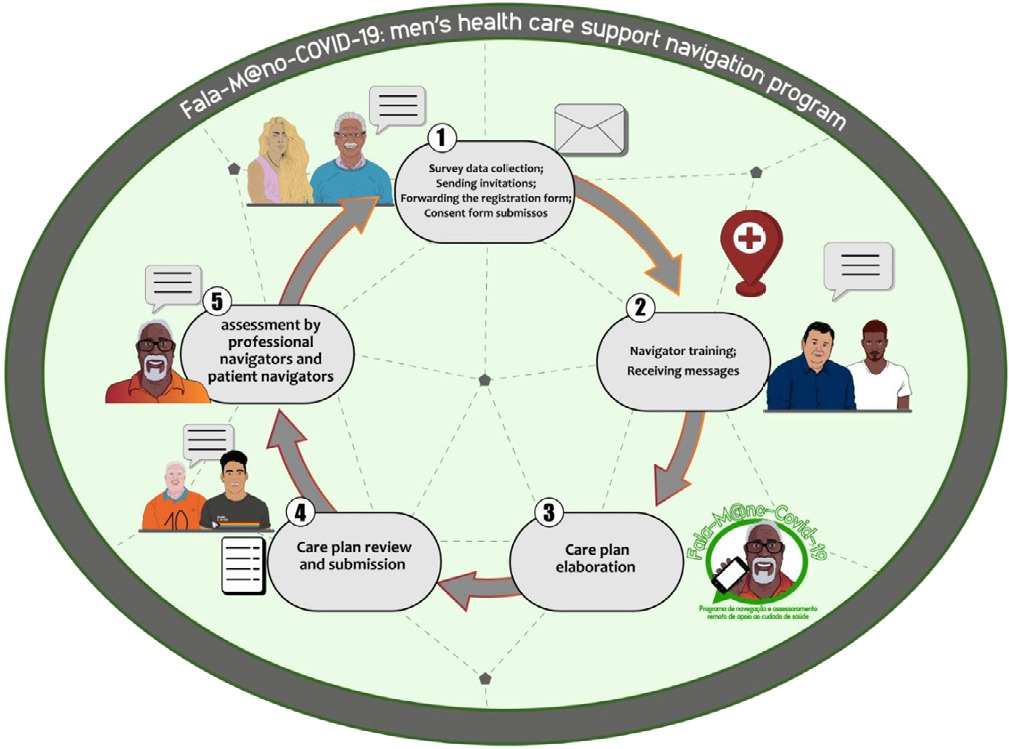
-
ORIGINAL ARTICLE12-04-2023
Social representation of young people in higher education about sexually transmitted infections
Revista Brasileira de Enfermagem. 2023;76(6):e20220406
Abstract
ORIGINAL ARTICLESocial representation of young people in higher education about sexually transmitted infections
Revista Brasileira de Enfermagem. 2023;76(6):e20220406
DOI 10.1590/0034-7167-2022-0406
Views0See moreABSTRACT
Objective:
to analyze the social representations about sexually transmitted infections elaborated by undergraduate students.
Methods:
a descriptive, qualitative study, in the light of the structural approach of Social Representation Theory, carried out with 160 young undergraduate students, in the second half of 2019, in the city of Rio de Janeiro. Data were collected using a sociodemographic characterization questionnaire, knowledge and practices for preventing sexually transmitted infections, analyzed using descriptive statistics and a form of free evocations with the inducing term STD, analyzed using prototypical and similarity analysis.
Results:
the representation’s possible central nucleus is composed of lexicons aids, disease and HIV; the peripheral system by syphilis, sex, condoms, gonorrhea, prevention, infection, carelessness, HPV, herpes, ignorance, treatment, fear, unprotected-sex and danger.
Final considerations:
social thinking about sexually transmitted infections is characterized by their recognition as diseases, which require barrier prevention measures, associating with unsafe sexual practices that arouse fear.

-
12-04-2023
The Medical Healing of Souls: a strategy for welcoming post-pandemic mental health
Revista Brasileira de Enfermagem. 2023;76(6):e20220331
Abstract
The Medical Healing of Souls: a strategy for welcoming post-pandemic mental health
Revista Brasileira de Enfermagem. 2023;76(6):e20220331
DOI 10.1590/0034-7167-2022-0331
Views0See moreABSTRACT
Objective:
to reflect on the applicability of the Medical Healing of Souls (MHS) by health professionals as a welcoming strategy in post-pandemic mental health.
Methods:
a theoretical and reflective study, based on Viktor Frankl’s philosophy, based on the book “The Doctor and the Soul, From Psychotherapy to Logotherapy” and scientific literature.
Results:
the study was structured in two discursive approaches: MHS in the field of health; The applicability of MHS in post-pandemic mental health care.
Final considerations:
MHS can be used in mental health care, in health emergencies, promoting a more humane performance of health professionals, facilitating the integration of inevitable suffering into a meaningful life.
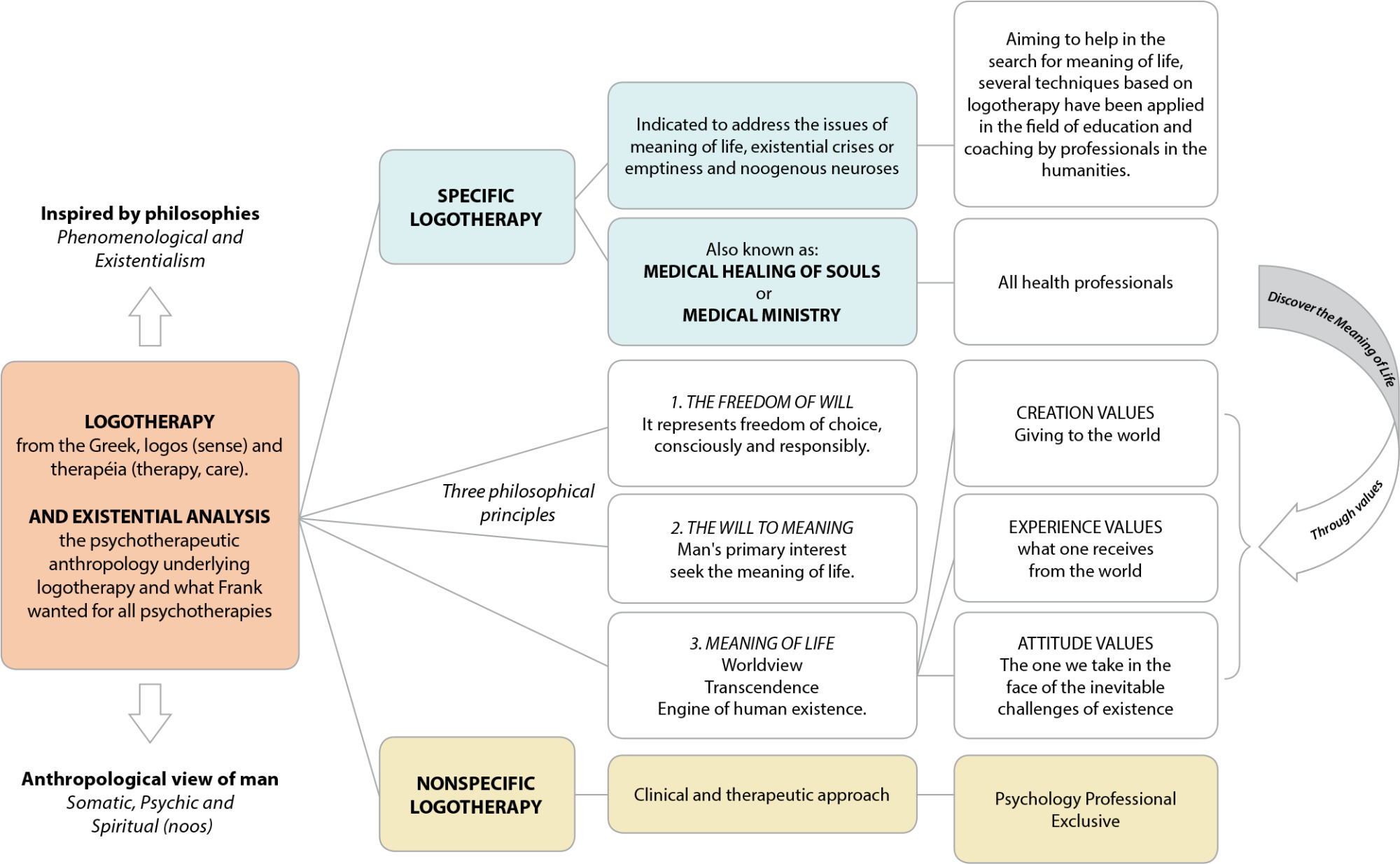
-
ORIGINAL ARTICLE12-04-2023
Translation, cross-cultural adaptation and validity study of the “Play Nicely Program: The Healthy Discipline Handbook” for use in Brazil
Revista Brasileira de Enfermagem. 2023;76(6):e20220281
Abstract
ORIGINAL ARTICLETranslation, cross-cultural adaptation and validity study of the “Play Nicely Program: The Healthy Discipline Handbook” for use in Brazil
Revista Brasileira de Enfermagem. 2023;76(6):e20220281
DOI 10.1590/0034-7167-2022-0281
Views0See moreABSTRACT
Objective:
to describe the translation, cross-cultural adaptation and validity process of the “Play Nicely Program: The Healthy Discipline Handbook” for use in Brazil.
Methods:
a methodological study that followed the translation, back-translation, expert committee assessment, and pre-test steps. The Content Validity Index (CVI) was calculated for both the judge population and the pre-test population. Four translators, seven expert judges in the field of child health and thirty participants in the pre-test, including parents, teachers and healthcare professionals, participated in the study.
Results:
in experts’ analysis (98.4%), a value of 100% of adequate assessments was obtained, and in the target population’s analysis (89.5%), there were 100% of adequate assessments. In both analyses, suggested adaptations were made.
Conclusios:
cross-cultural adaptation and content validity into Brazilian Portuguese of the “Play Nicely Program: The Healthy Discipline Handbook” were considered adequate for application in the target population.

-
ORIGINAL ARTICLE12-04-2023
Assessment of the components of sarcopenia and quality of life perceived of individuals on hemodialysis
Revista Brasileira de Enfermagem. 2023;76(6):e20220677
Abstract
ORIGINAL ARTICLEAssessment of the components of sarcopenia and quality of life perceived of individuals on hemodialysis
Revista Brasileira de Enfermagem. 2023;76(6):e20220677
DOI 10.1590/0034-7167-2022-0677
Views1See moreABSTRACT
Objectives:
to evaluate the prevalence of sarcopenia in individuals aged 50 years or older on hemodialysis; to verify the association between sarcopenia and sociodemographic, clinical, anthropometric factors, components of sarcopenia and quality of life (QoL); and to correlate the components of sarcopenia with QoL.
Methods:
Participated 83 individuals on hemodialysis. Sarcopenia was established according to the current European consensus. Dynamometry to determine strength, calf circumference (CC) and appendicular skeletal muscle mass index (ASMMI) to obtain muscle mass and gait speed (GS) for physical performance. For QoL used the WHOQOL-bref.
Results:
the prevalence of sarcopenia was 32.6% (CC) and 18.1% (ASMMI). There was no association between sarcopenia and QoL. Both handgrip strength (r=0.25) and GS (r=0.36) showed a correlation with physical domain.
Conclusions:
sarcopenia was expressive, and the aspects of functionality determine the physical impairment in this population.
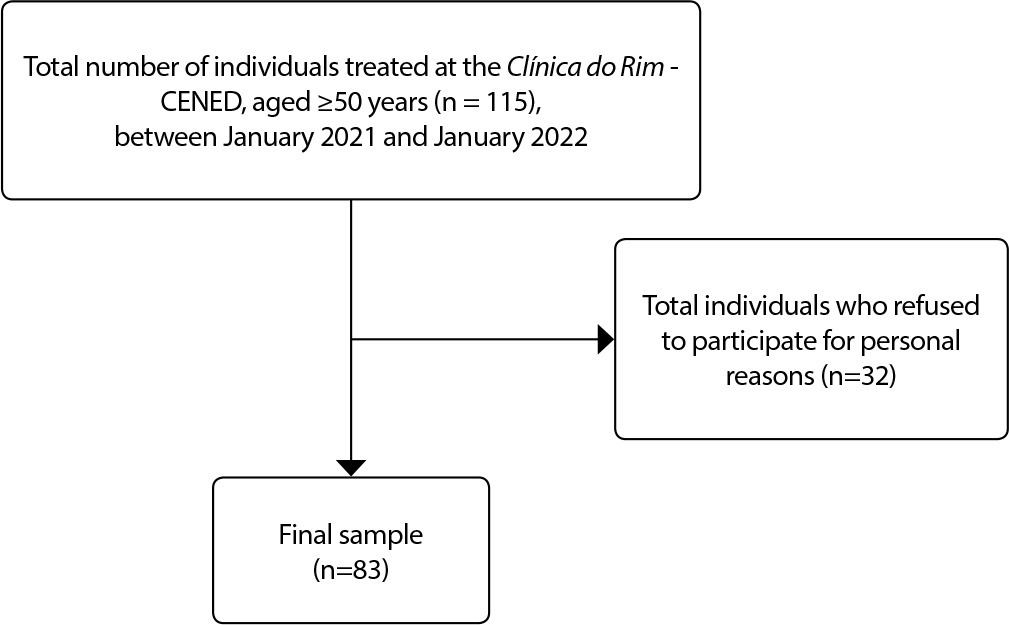
-
ORIGINAL ARTICLE12-04-2023
Effects of auriculotherapy on anxiety and biomarkers in Primary Health Care: a clinical trial
Revista Brasileira de Enfermagem. 2023;76(6):e20220728
Abstract
ORIGINAL ARTICLEEffects of auriculotherapy on anxiety and biomarkers in Primary Health Care: a clinical trial
Revista Brasileira de Enfermagem. 2023;76(6):e20220728
DOI 10.1590/0034-7167-2022-0728pt
Views0See moreABSTRACT
Objective:
to assess the effects of auriculotherapy on anxiety and brain-derived neurotrophic factor (BDNF), neuron-specific enolase (NSE) and S100 calcium-binding protein B (S100B) serum levels in adults assisted in Primary Health Care.
Methods:
a pre-experimental pilot clinical trial. Information was obtained from 19 patients using the State-Trait Anxiety Inventory (STAI) and analysis of BDNF, NSE and S100B serum levels.
Results:
the pre-intervention anxiety score in the IDATE-Trait was 52.11±6.691 (CV 12.84%) and the assessment after auriculotherapy was significantly lower (43.72±8.141; CV 18.62%; P=0.0007). S100B levels were significantly reduced after auriculotherapy (from 64.03±72.18 to 54.03±68.53 pg/mL; CV 126.8%; P=0.0023).
Conclusion:
auriculotherapy effectively reduced anxiety levels. It proved to be safe and easy to apply, allowing nurses to perform this technique autonomously. A reduction of S100B was also evidenced, demonstrating possible prevention of neuronal damage.
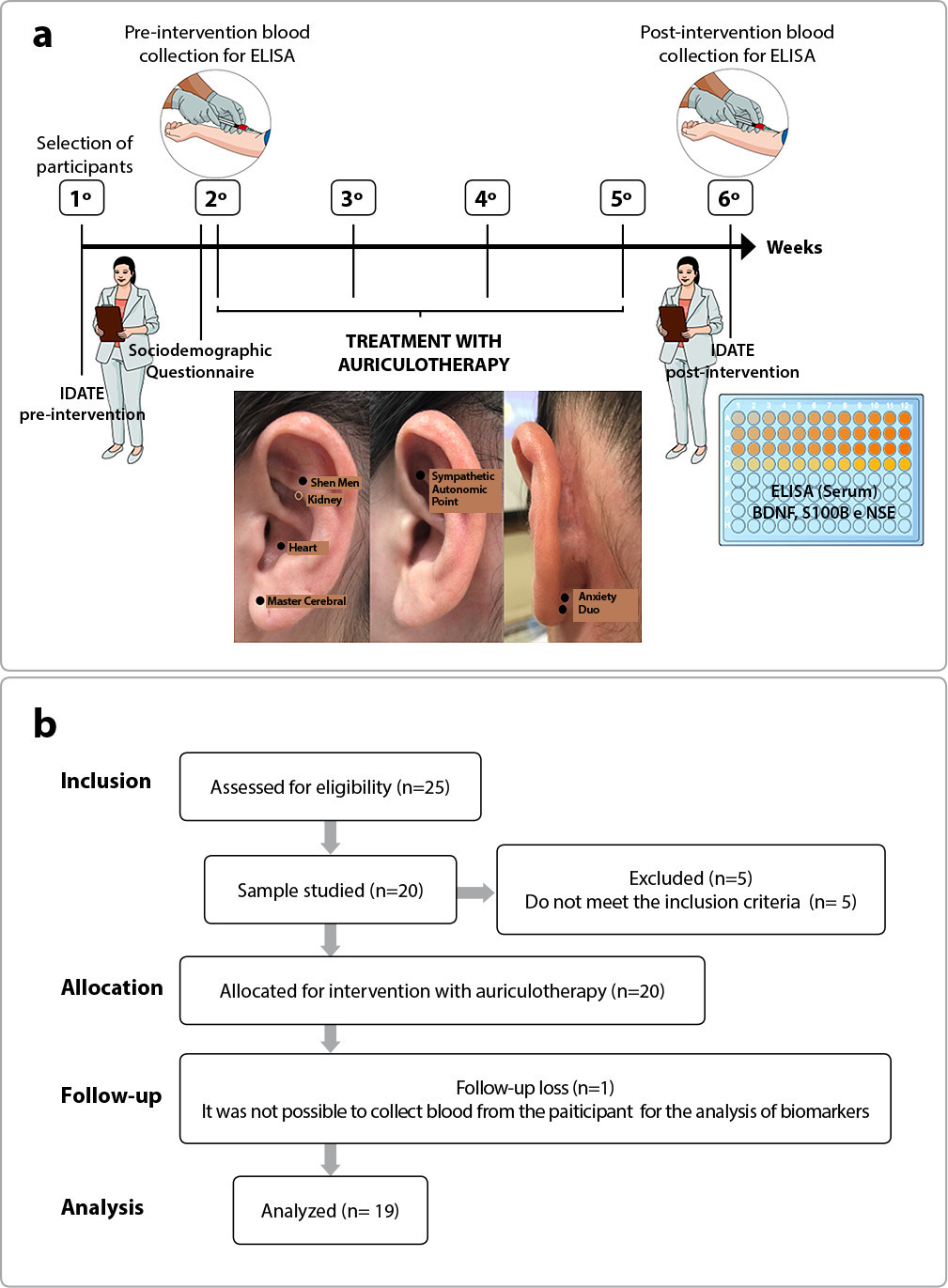
-
ORIGINAL ARTICLE12-04-2023
Leadership Competencies of the Medical-Surgical Nursing Specialist Nurse
Revista Brasileira de Enfermagem. 2023;76(6):e20220721
Abstract
ORIGINAL ARTICLELeadership Competencies of the Medical-Surgical Nursing Specialist Nurse
Revista Brasileira de Enfermagem. 2023;76(6):e20220721
DOI 10.1590/0034-7167-2022-0721
Views0See moreABSTRACT
Objective:
To identify the leadership competencies of Medical-Surgical Nursing Specialist Nurses.
Methods:
A quantitative, descriptive study using the Leadership Competencies Questionnaire. 311 Portuguese Medical-Surgical Nursing Specialist Nurses participated. Data analysis involved descriptive and inferential statistical analysis using the Statistical Package for Social Sciences (SPSS), version 22.0.
Results:
Study participants had an above-average self-perception on the scale (mean = 3.5) in all leadership roles, recognizing their leadership competencies. The leadership competencies of Medical-Surgical Nursing Specialist Nurses are balanced across all roles: Mentor (5.80 ± 1.02); Coordinator (5.53 ± 0.86); Facilitator (5.38 ± 1.04); Innovator (5.34 ± 0.88); Director (5.31 ± 1.10); Producer (5.30 ± 0.98); Monitor (5.15 ± 1.00); Corrector (4.79 ± 1.29)
Conclusions:
Specialized nursing practice enhances nurses’ self-perceived leadership competencies. Nurses see themselves as leaders focused on internal support and facilitation of collective effort and opportunities for skill development.
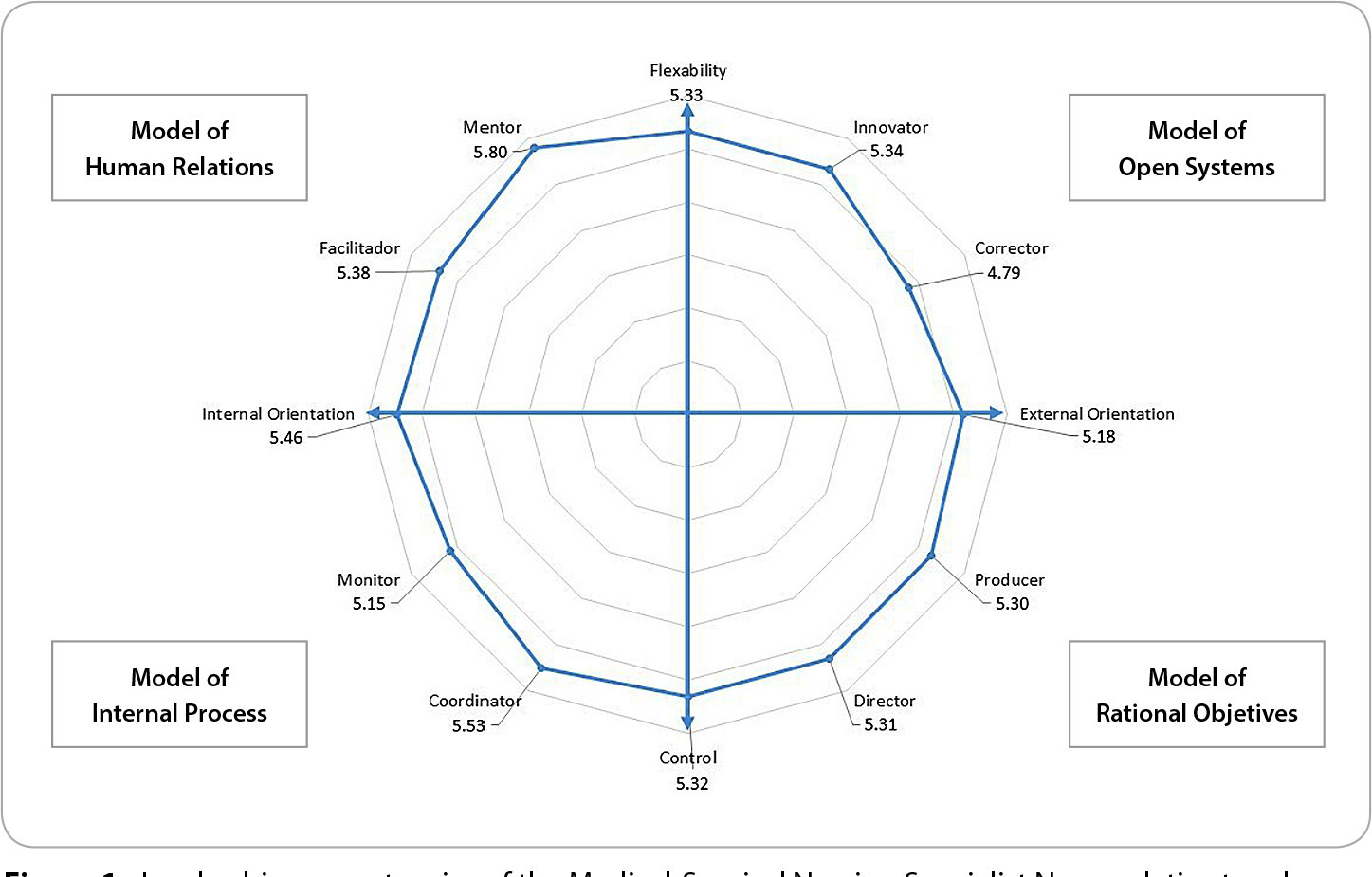
-
ORIGINAL ARTICLE12-04-2023
Feelings about birth by a group of high-risk pregnant women
Revista Brasileira de Enfermagem. 2023;76(6):e20230059
Abstract
ORIGINAL ARTICLEFeelings about birth by a group of high-risk pregnant women
Revista Brasileira de Enfermagem. 2023;76(6):e20230059
DOI 10.1590/0034-7167-2023-0059
Views0See moreABSTRACT
Objective:
to understand feelings about birth among a group of high-risk pregnant women.
Method:
a descriptive and qualitative study, using Alfred Schütz’s social phenomenology as a philosophical theoretical framework. The study included 25 pregnant women undergoing high-risk prenatal care. The interview had the following guiding questions: tell me about your feelings regarding the moment of birth/childbirth; How do you deal with the high-risk diagnosis? What are your expectations for birth/childbirth?
Results:
five categories emerged: Fear of obstetric care; Fear of complications with the baby; Fear of cesarean section; Resilience in the face of high-risk pregnancy; and Expectations for birth.
Considerations:
high-risk pregnant women are afraid of the care they will receive, the risks and concern about the baby’s vitality at birth. The importance of care is emphasized, with a welcoming environment, bonding and communication between health team and pregnant woman.
-
RESEARCH01-01-2018
Assistance flowchart for pain management in a Neonatal Intensive Care Unit
Revista Brasileira de Enfermagem. 2018;71:1281-1289
Abstract
RESEARCHAssistance flowchart for pain management in a Neonatal Intensive Care Unit
Revista Brasileira de Enfermagem. 2018;71:1281-1289
DOI 10.1590/0034-7167-2017-0265
Views0See moreABSTRACT
Objective:
To describe and discuss the process of developing a flowchart collectively constructed by the health team of a Neonatal Intensive Care Unit for the management of neonatal pain.
Method:
This is a descriptive and an exploratory study with a qualitative approach that used Problem-Based Learning as a theoretical-methodological framework in the process of developing the assistance flowchart for the management of neonatal pain.
Results:
Based on this methodology, there was training in service and the discussion of key points of pain management by the health team, which served as input for the construction of the flowchart.
Final considerations:
The assistance flowchart for pain management, based on scientific evidence, provided means to facilitate the decision-making of the health team regarding the pain of the newborn. It is suggested to use the flowchart frequently to promote the permanent education of the team and identify possible points to be adjusted.

-
RESEARCH01-01-2018
The adolescent and the institutionalization: understanding the phenomenon and meanings attributed to it
Revista Brasileira de Enfermagem. 2018;71:1373-1380
Abstract
RESEARCHThe adolescent and the institutionalization: understanding the phenomenon and meanings attributed to it
Revista Brasileira de Enfermagem. 2018;71:1373-1380
DOI 10.1590/0034-7167-2017-0242
Views1See moreABSTRACT
Objective:
To understand the meaning of being institutionalized and in conflict with the law for the institutionalized adolescent.
Method:
A qualitative, phenomenological-comprehensive study carried out in a Socio-educational Service Foundation in the northern region of Brazil, with 05 institutionalized adolescents. The analysis was carried out under the understanding of the content suggested by Heidgger, thus allowing the construction of analytical categories for a hermeneutical interpretation.
Results:
Conflicting with the law means something negative and bad for the institutionalized adolescents, in which they understand that although there is deprivation of liberty, the period of hospitalization is an important moment for the reflection on the need to start over.
Conclusion:
The meaning of conflicting with the law goes far beyond a simple word, act or behaviour, it is something that only those who experience the phenomenon are able to unveil, arouse deep feelings and provide reflection to the adolescent about the damages caused by the infraction.
-
RESEARCH01-01-2018
Identification of post-cesarean surgical site infection: nursing consultation
Revista Brasileira de Enfermagem. 2018;71:1395-1403
Abstract
RESEARCHIdentification of post-cesarean surgical site infection: nursing consultation
Revista Brasileira de Enfermagem. 2018;71:1395-1403
DOI 10.1590/0034-7167-2017-0325
Views0See moreABSTRACT
Objective:
To describe the profile of women in relation to their living conditions, health status and socio-demographic profile, correlating it with the presence of signs and symptoms suggestive of post-cesarean surgical site infection, identifying information to be considered in the puerperium consultation performed by nurses and proposing a roadmap for the systematization of care.
Method:
Quantitative, exploratory, descriptive, cross-sectional and retrospective review of medical records of women who had cesarean deliveries in 2014, in the city of São Paulo.
Results:
89 medical records were analyzed, 62 of them with incomplete information. In 11, there was at least one of the signs and symptoms suggestive of infection.
Conclusion:
Given the results of the study, the systematization of puerperal consultation is essential. The roadmap is an instrument that can potentially improve the quality of service and the recording of information.
-
RESEARCH01-01-2018
Nursing laboratory and critical education of nurses: approaches and distances
Revista Brasileira de Enfermagem. 2018;71:1500-1506
Abstract
RESEARCHNursing laboratory and critical education of nurses: approaches and distances
Revista Brasileira de Enfermagem. 2018;71:1500-1506
DOI 10.1590/0034-7167-2017-0339
Views1See moreABSTRACT
Objective:
to analyze the contribution of the laboratory of nursing to the critical education of nurses.
Method:
qualitative study, conducted among 18 professors of higher education institutions, being one public and the other private. Data were collected between February and November of 2016 by means of semi-structured interview. To analyze data, it was used a content analysis in the thematic modality.
Results:
it was observed the emphasis in the technical skills development by propagation of behavior and practices; the creation of bonds between professors and students happens on the limit of good interpersonal relationship; the laboratory of nursing may help the critical reflection about the practice, being a place that allows the learning of ethics.
Final considerations:
the nurse education, carried out by the laboratory of nursing, have to overcome the emphasis in the uncritical reproduction of practices and to observe the nurse’s power to think about the reality in the meaning of its modification.
-
RESEARCH01-01-2018
Introduction of the School Health Program in the city of Cascavel, Paraná State: report of nurses
Revista Brasileira de Enfermagem. 2018;71:1540-1547
Abstract
RESEARCHIntroduction of the School Health Program in the city of Cascavel, Paraná State: report of nurses
Revista Brasileira de Enfermagem. 2018;71:1540-1547
DOI 10.1590/0034-7167-2017-0188
Views1See moreABSTRACT
Objective:
to understand the introduction of the School Health Program in the city of Cascavel, Paraná State, as opposed to the report of nurses.
Method:
a qualitative study with fifteen participants. The data were collected from April to August 2015, through semi-structured interviews, analyzed by content analysis and thematic modality.
Results:
the category “Introduction process” of the School Health Program integrates the subcategories “Identified health problems” and the “Challenges of intersectoriality”. The program was implemented quickly, with a fragile training of professionals to perform in the phases that compose it. Structural conditions of schools, human and material resources, and emerging intersectoral interaction were identified obstacles. The integration of the health, school, and family constitutes the program’s potentiality.
Final considerations:
it is understood that the actions of the program were based on health assessments of students, and it is necessary for professionals and managers to discuss and analyze the obstacles identified to achieve all the proposed objectives.
-
RESEARCH01-01-2018
Knowledge about precautions in Primary Health Care: tool validation
Revista Brasileira de Enfermagem. 2018;71:1589-1595
Abstract
RESEARCHKnowledge about precautions in Primary Health Care: tool validation
Revista Brasileira de Enfermagem. 2018;71:1589-1595
DOI 10.1590/0034-7167-2017-0886
Views0See moreABSTRACT
Objective:
To elaborate and validate a tool to assess knowledge and behavior of nursing professionals about standards and specific precautions in the Primary Health Care.
Method:
Methodological study of the elaboration and validation of the tool by thirteen experts judges, using a Likert scale of 4 points, with Content Validity Index ≥ 0.80, on clarity, relevance and pertinence.
Results:
A tool composed of 47 dichotomous questions to assess knowledge and 12 questions, with five options of answers, for the referred behavior. In the validation, only one item was deleted, related to the “Hands Hygiene” axis and one item was reformulated, regarding “Use of Common Gloves” and another 11 changed writing. The tool as a whole was assessed for relevance, comprehensiveness and representativeness within the scope of the topic investigated.
Conclusion:
The developed tool has been validated and is now available for use in Primary Health Care.
-
RESEARCH01-01-2018
Training in diabetes education: meanings attributed by primary care nurses
Revista Brasileira de Enfermagem. 2018;71:1611-1618
Abstract
RESEARCHTraining in diabetes education: meanings attributed by primary care nurses
Revista Brasileira de Enfermagem. 2018;71:1611-1618
DOI 10.1590/0034-7167-2017-0792
Views1See moreABSTRACT
Objective:
seize meanings attributed by primary care nurses to training in diabetes education.
Method:
exploratory and descriptive study, with a qualitative approach, with twenty primary care nurses; semistructured interview script, with interviews processed in the IRaMuTeQ software and analyzed through the Descending Hierarchical Classification. The results were subsidized in the Representational Theory of Meaning.
Results:
nurse training in diabetes education is insufficient for holistic action, although it allows the community to be instrumentalized in specific issues about the disease, using the limited tools available, especially lectures. Nurses find themselves in a context of challenges, improvisations, weaknesses, and limitations that determine the meaning attributed to diabetes education and subsequent actions.
Conclusion:
the meanings attributed by the nurses revealed an incipient training, which limits the quality of care provided and instigates the search for qualification.

-
RESEARCH01-01-2018
Nursing international student mobility in the University of São Paulo
Revista Brasileira de Enfermagem. 2018;71:1619-1625
Abstract
RESEARCHNursing international student mobility in the University of São Paulo
Revista Brasileira de Enfermagem. 2018;71:1619-1625
DOI 10.1590/0034-7167-2017-0754
Views1See moreABSTRACT
Objective:
To characterize the experiences of undergraduate students of the School of Nursing of the University of São Paulo (EEUSP) who participated in international mobility programs between January 2011 and July 2017.
Method:
Exploratory, descriptive study with quantitative approach. Of 68 reports, only 38 (56%) were considered valid and were submitted to descriptive statistical analysis. Data were categorized in general, institutional, academic and cultural aspects and cost of living.
Results:
The main destination was Portugal and the years with most participation were 2012 and 2013. The mean stay was six months and the students took a mean of three to four courses. The main funder was the university of origin.
Conclusion:
Academic activities were limited to theoretical and practical courses, with little insertion in research. There is a need to increase investment in learning other languages and to expand partnerships with larger centers of foreign education and research.
-
06-11-2021
Resilience in elderly people: factors associated with sociodemographic and health conditions
Revista Brasileira de Enfermagem. 2021;74:e20200171
Abstract
Resilience in elderly people: factors associated with sociodemographic and health conditions
Revista Brasileira de Enfermagem. 2021;74:e20200171
DOI 10.1590/0034-7167-2020-0171
Views0See moreABSTRACT
Objective:
to describe the sociodemographic and health characteristics of elderly people, measure the score of total resilience and by sex and verify the association of sociodemographic and health variables with total resilience and by sex.
Methods:
this is a household survey with 808 elderly people, assessed by validated instruments. Student’s t test and multiple linear regression (p<0.05).
Results:
most were female, 60|-|79 years old. The total resilience score was 78.06, for men 81.53 and for women, 76.32. Total resilience was associated with males; positive self-perceived health; greater participation in Advanced Activities of Daily Living; fewer morbidities; absence of depressive symptoms. Among men and women, resilience was associated with greater participation in Advanced Activities of Daily Living and absence of depressive symptoms and, specifically, among women, positive self-perceived health.
Conclusion:
these results contribute to nursing care, aiming to encourage resilience.
-
REFLECTION03-05-2021
Reflections on patient safety incident reporting systems
Revista Brasileira de Enfermagem. 2021;74:e20200307
Abstract
REFLECTIONReflections on patient safety incident reporting systems
Revista Brasileira de Enfermagem. 2021;74:e20200307
DOI 10.1590/0034-7167-2020-0307
Views0See moreABSTRACT
Objective:
To reflect on the main characteristics and recommendations of Incident Reporting Systems, discuss the population’s participation in reporting, and point out challenges in the Brazilian system.
Method:
Reflection study, based on Ordinance No. 529/13, which instituted the National Patient Safety Program, under Collegiate Board Resolution (CBR) No. 36/13; reflections by experts were added.
Results:
Reporting systems are a source for learning and monitoring, allow early detection of incidents, investigations and, mainly, the generation of recommendations prior to recurrences, in addition to raising information for patients and relatives. There is little participation of the population in the reporting, regardless of the type of system and characteristics such as confidentiality, anonymity, and mandatory nature.
Final Considerations:
In Brazil, although reporting is mandatory, there is an urgency to advance the involvement and participation of the population, professionals, and institutions. To simplify data entry by improving the interface and importing data from the reporting system is an objective to be achieved.
-
ORIGINAL ARTICLE09-16-2019
Validation of Brazilian educational technology for disseminating knowledge on leprosy to adolescents
Revista Brasileira de Enfermagem. 2019;72(5):1333-1340
Abstract
ORIGINAL ARTICLEValidation of Brazilian educational technology for disseminating knowledge on leprosy to adolescents
Revista Brasileira de Enfermagem. 2019;72(5):1333-1340
DOI 10.1590/0034-7167-2018-0610
Views0See moreABSTRACT
Objective:
Elaborate and validate an educational technology for adolescents on leprosy, focusing on preventing the disease and reducing stigma.
Method:
First, a prototype of the educational technology was elaborated and later analyzed by 17 adolescents and 7 researchers’ experts in the leprosy area and educational technologies who answered a questionnaire with questions related to the subject. Subsequently, the technology has been applied to 43 adolescents, and a questionnaire was handed before and after the use of the game, so that questionnaire scores were compared by a Wilcoxon paired test.
Results:
After the data collection with researchers and adolescents, the answers received descriptive treatment, and the Content Validity Index was calculated, which reached a good level of agreement, with an overall value (0.86), although there were improvements to the technology, based on the perceptions of researchers and adolescents.
Conclusions:
There was an increase in knowledge about leprosy.
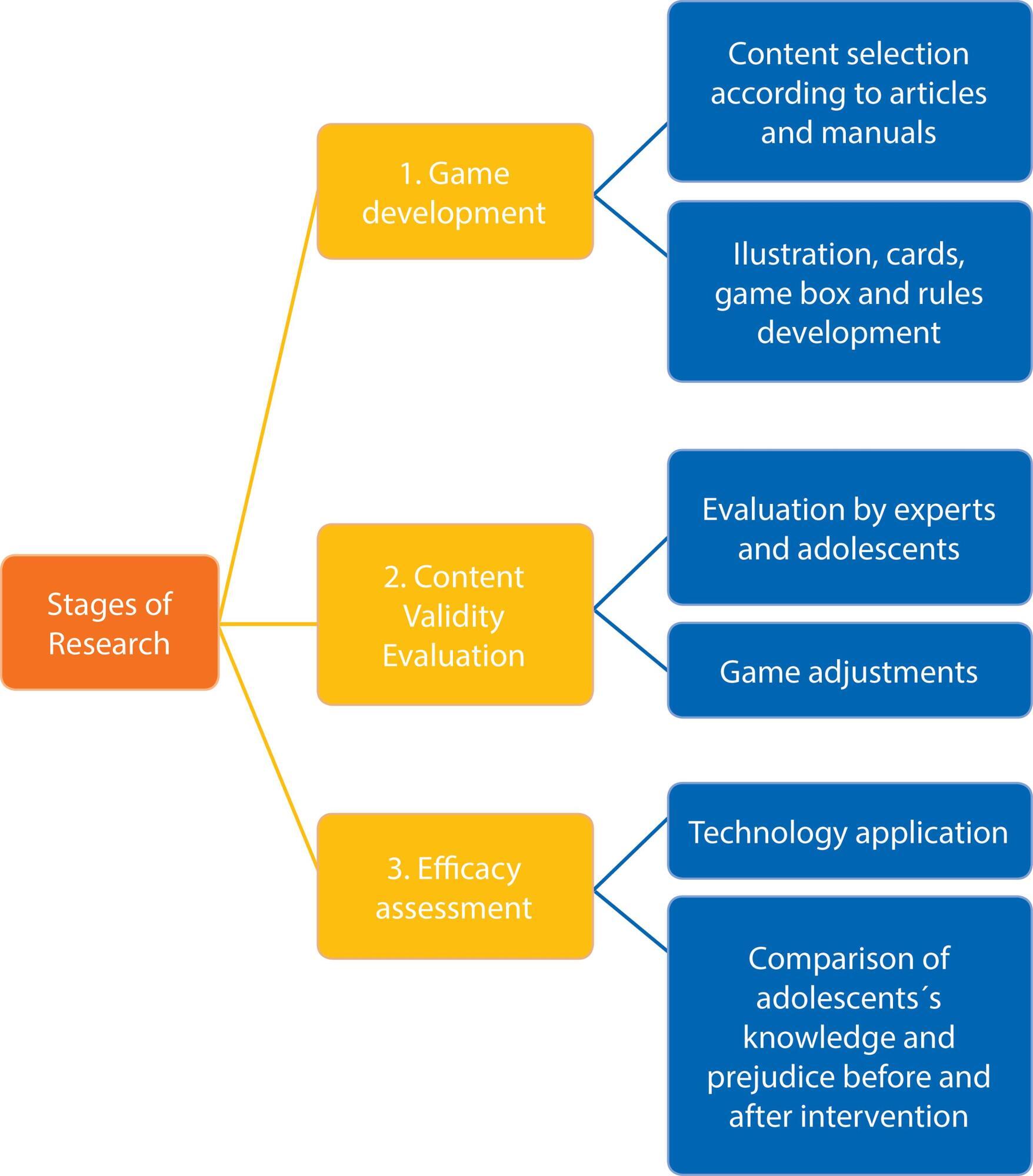
-
ORIGINAL ARTICLE09-16-2019
Development and evaluation of an application for syphilis control
Revista Brasileira de Enfermagem. 2019;72(5):1326-1332
Abstract
ORIGINAL ARTICLEDevelopment and evaluation of an application for syphilis control
Revista Brasileira de Enfermagem. 2019;72(5):1326-1332
DOI 10.1590/0034-7167-2018-0877
Views0See moreABSTRACT
Objective:
to develop and evaluate an application for syphilis control in pregnant women.
Method:
methodological research developed between March and November of 2016 in two phases: bibliographic survey of the years 2012 to 2016 in the databases PubMed, CAPES and Scopus and application development. Eight users participated in the usability test and five doctors and five nurses working in prenatal care participated in the evaluation.
Results:
the application contains informative video, information about the disease, map of health clinics, agenda function and anonymous notification. The evaluation of the objective, function and relevance was considered adequate with value higher than 0.80 in all items of the Content Validity Index.
Final considerations:
the application makes easier the routine of health services in the context of health promotion, in the convocation and treatment of pregnant women and their partners.
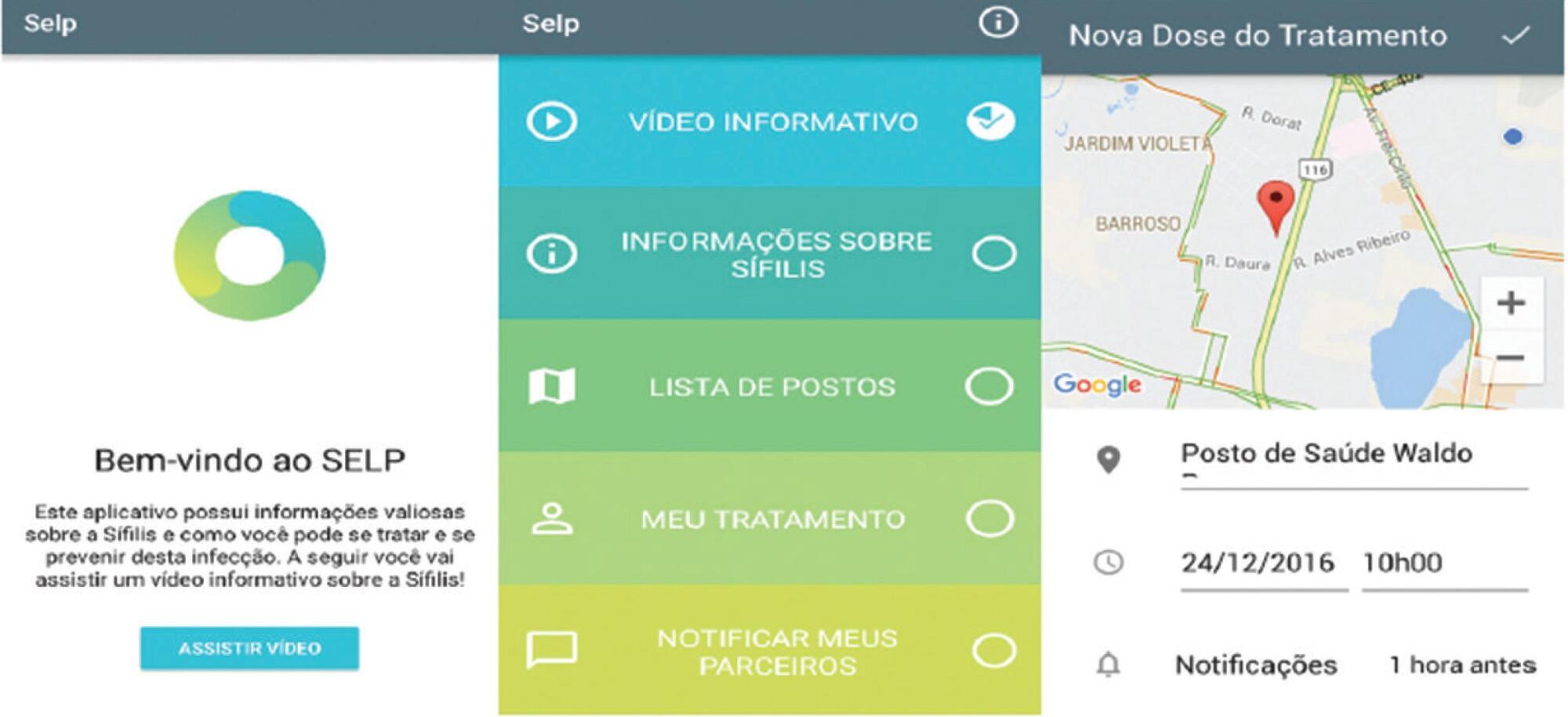
-
ORIGINAL ARTICLE03-30-2022
Nursing consultation in the Family Health Strategy and the nurse’s perception: Grounded Theory
Revista Brasileira de Enfermagem. 2022;75(4):e20201105
Abstract
ORIGINAL ARTICLENursing consultation in the Family Health Strategy and the nurse’s perception: Grounded Theory
Revista Brasileira de Enfermagem. 2022;75(4):e20201105
DOI 10.1590/0034-7167-2020-1105
Views0See moreABSTRACT
Objectives:
to understand the experience of nurses with nursing consultations in the context of the Family Health Strategy and propose a representative model.
Methods:
qualitative research using Grounded Theory, with 14 nurses working through non-directive interviews. For data analysis, three stages were used: open, axial and selective coding, which originated phenomena, themes, categories and subcategories, which supported the construction of the central category and, consequently, the theoretical model.
Results:
the interrelation of phenomena emerged from the essence of the nurse’s experience, revealing the central category: From nursing education to the practice of Nursing Consultation, unveiling learning, challenges and autonomy as intervening components. Final Considerations: the nurse’s experience is positive and, despite numerous challenges in daily life, the nurse has been performing it based on comprehensive care. New studies may add new understandings that enable the expansion of working conditions, valuing the nursing consultation.
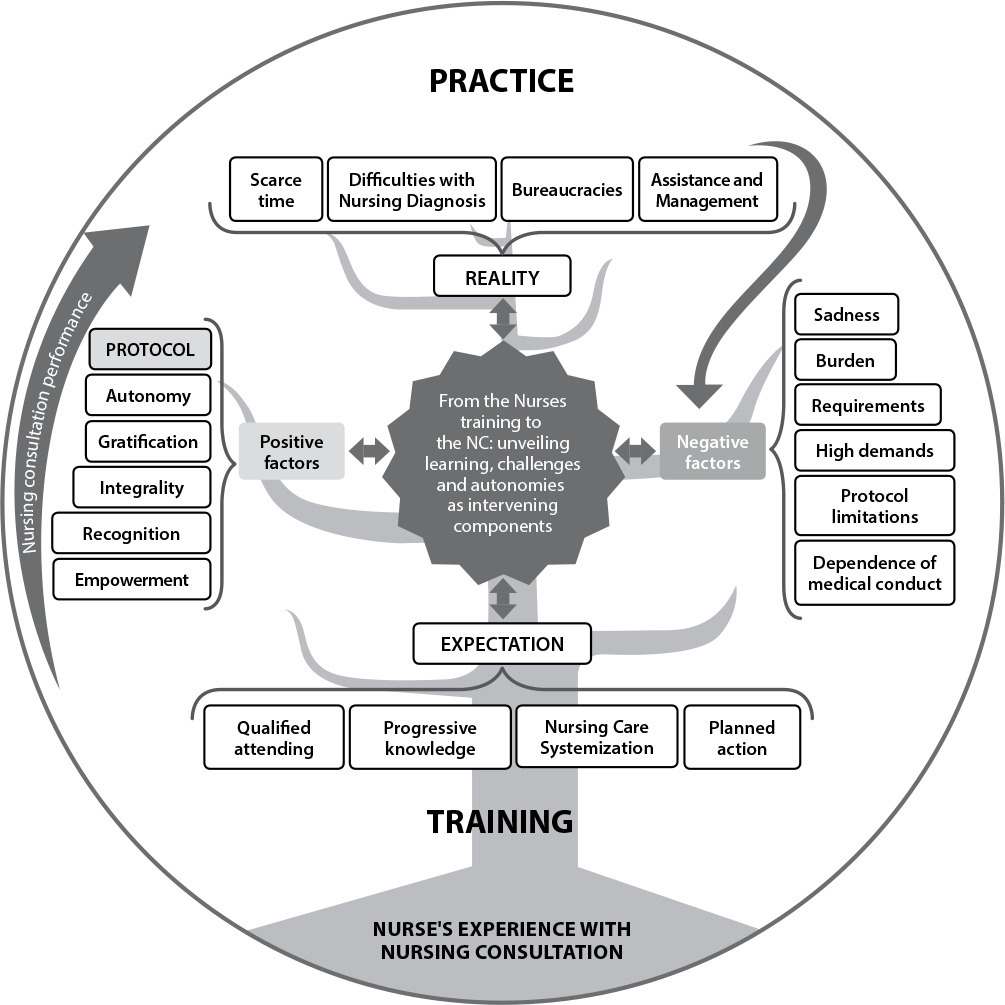
-
ORIGINAL ARTICLE02-10-2020
Resources, objectives and guidelines in a Psychosocial Care Network structure
Revista Brasileira de Enfermagem. 2020;73(1):e20170864
Abstract
ORIGINAL ARTICLEResources, objectives and guidelines in a Psychosocial Care Network structure
Revista Brasileira de Enfermagem. 2020;73(1):e20170864
DOI 10.1590/0034-7167-2017-0864
Views0See moreABSTRACT
Objective:
to analyze a Psychosocial Care Network structure, based on the compromise of its resources and meeting objectives and guidelines recommended in Ordinance 3,088/2011.
Method:
an empirical, quantitative study with 123 primary care professionals, psychosocial and emergency care, who work at Western Network of the city of São Paulo. Questionnaires and statistical analysis were applied through the Exact Fisher’s test with 5% significance considering p= <0.05.
Results:
there is compromise of physical resources in the absence of mental health beds in a general hospital (p=0.047); of technological resources in the lack of discussion forums (p=0.036); of human resources in number of teams (p=0.258); and of financial resources (p=0.159). Psychosocial care is the one that most meets the objectives and guidelines.
Conclusion:
there are insufficient physical, technological, human, and financial resources for the work articulated in the three care modalities that are heterogeneous in terms of meeting the objectives and guidelines.
-
ORIGINAL ARTICLE02-25-2022
Assessment of the attributes of Primary Health Care with women of reproductive age
Revista Brasileira de Enfermagem. 2022;75(3):e20210015
Abstract
ORIGINAL ARTICLEAssessment of the attributes of Primary Health Care with women of reproductive age
Revista Brasileira de Enfermagem. 2022;75(3):e20210015
DOI 10.1590/0034-7167-2021-0015
Views0See moreABSTRACT
Objectives:
to evaluate the quality of Primary Health Care attributes according to the characterization and perspective of women of reproductive age.
Methods:
descriptive, quantitative, cross-sectional study, with 397 women of reproductive age from six municipalities in the 16th Health Region of the state of Paraná, with variables for sociodemographic characterization and the Primary Care Assessment Tool (PCATool).
Results:
mean age, 30.43 years old, most were married, 70.2% worked outside the home and 55.5% had completed high school. The highest average score of the eight domains evaluated was “Family Guidance” and “Coordination – Integration of Care”, with averages of 5.86 and 4.89. Domains “Integrality – Services Provided” and “Community Orientation” had lower averages (3.32 and 3.76).
Conclusions:
the study allowed tracing the characterization of the participants and identifying that the attributes of Primary Care are unsatisfactory, making it necessary to expand access to the services offered and to qualify the comprehensive care for women’s health.
-
ORIGINAL ARTICLE09-23-2022
Social entrepreneurship in the professional training in Nursing
Revista Brasileira de Enfermagem. 2022;75(3):e20220391
Abstract
ORIGINAL ARTICLESocial entrepreneurship in the professional training in Nursing
Revista Brasileira de Enfermagem. 2022;75(3):e20220391
DOI 10.1590/0034-7167-2021-0391
Views0See moreABSTRACT
Objectives:
to assess the knowledge and practices that stimulate social entrepreneurship in the professional training of Nursing students.
Methods:
qualitative exploratory-descriptive study carried out with 44 Nursing students from a University in the South Region of Brazil. Data were collected between May and August 2021, through individual online interviews. The participants were students of nursing course in the 6th semester or above, who had previously participated in teaching, research, or university outreach activities on entrepreneurship.
Results:
the data was organized and analyzed according to the thematic analysis technique and resulted in three thematic categories: Meanings of social entrepreneurship, Factors that sparked social entrepreneurship, and Recognizing oneself as an entrepreneurial nurse.
Final Considerations:
the knowledge and practices that stimulate social entrepreneurship in the professional training of Nursing students are associated with teaching, research and university outreach activities that allow concrete experiences in the living and dynamic world of communities.
Search
Search in:
Nuvem de Tags
Adolescente (85) Atenção Primária à Saúde (239) COVID-19 (91) Criança (91) Cuidados de Enfermagem (269) Educação em Enfermagem (151) Educação em Saúde (139) Enfermagem (930) Enfermagem Pediátrica (86) Estudantes de Enfermagem (77) Estudos de Validação (131) Família (87) Idoso (208) Promoção da Saúde (99) Qualidade de Vida (104) Saúde do Trabalhador (86) Saúde Mental (145) Saúde Pública (82) Segurança do Paciente (150) Tecnologia Educacional (100)



